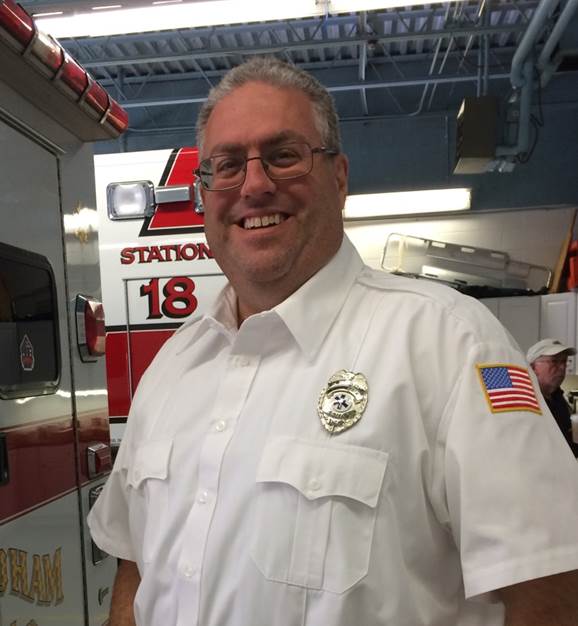|
... and we try not to drop them along the way. Two weeks of class are under my belt, and I'm feeling kind of good. There is certainly a lot of material being covered, and a whole bunch of practical exercises so we can practice skills until they become second nature. Ashley even described the practical exercises as "fun," even while they are designed to get you to think critically about patient care, teamwork and communication.
We also spent time talking about scene safety, for the benefit of ourselves, our crews and our patients. The instructors are drilling in to us a specific set of checklists and questions to consider (some using our inside-the-head voices, some to be asked to our patients), in order to ensure we don't skip or miss a critical piece of relevant information that could direct or change the actions or interventions we are providing (or planning to provide) our patients.
Practical exercises give us specific scenarios to work, ranging from basic radio communication messages (and getting comfortable using Military timekeeping in order to eliminate confusion as to when activities may have occurred), to challenging extrication scenes, such as getting an elderly patient out of a bathtub or moving a patient from a stairwell to an ambulance safely, effectively, and efficiently. In all these exercises, we're challenged to leverage the strengths (physical or otherwise) of our team members, and to think critically about the best way to accomplish the goal with the least amount of impact to the patient. Equally important, we're pressed to ensure we are talking TO the patient, keeping them informed and involved in their own care, and not just talking around or about them as if they weren't there. Next week, we pick up human anatomy, get familiar with medical terminology, and delve in to some basic principles of pharmacology, just to name a few. The amount of reading ahead of me is, admittedly, a bit daunting, but I'm sticking with the plan to put in a a few hours each night reviewing materials and making sure that I keep up progress so that classroom lectures are more a review session than an initial introduction of the materials. I've also found that taking some of the online quizzes before starting the materials gives me a good baseline of what materials I may have a natural feel for (or in some cases, am totally off base with my gut instincts), and therefore helps me understand what sections of the material I need to pay closer attention to during the lectures and reviews. We'll see how it goes...
0 Comments
Your comment will be posted after it is approved.
Leave a Reply. |
AuthorJon Alperin, one of our MFAS volunteers, shares his journey to becoming an NJ certified EMT. from the Start
Here is Jon's journey, presented in time order:
Archives
June 2016
Categories
All
|



 RSS Feed
RSS Feed
